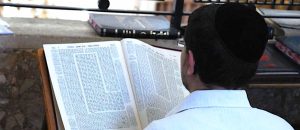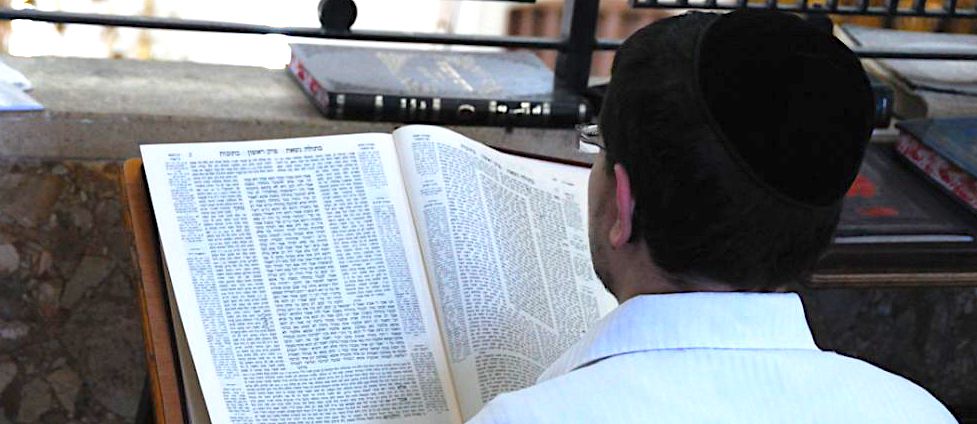
These final portions in the Book of Exodus summarize the amazing accomplishments of the Children of Israel in building the Mishkan — the edifice that would house the Divine presence in this temporal world — while in the desert. It was a mammoth feat, an act that consumed an entire nation. Men and women, young and old each had a share in this great endeavor. The Torah tells us: “Every man whose heart inspired him came; and everyone whose spirit motivated him brought the portion of Hashem for the work of the Tent of Meeting, for all its labor and for the sacred vestments. The men came with the women; everyone whose heart motivated him brought bracelets, nose-rings, rings, body ornaments — all sorts of gold ornaments — every man who raised up an offering of gold to Hashem.” (Exodus 35:21-22)
And then there were those who did the work. “Moses summoned Bezalel, Oholiab, and every wise-hearted man whose heart Hashem endowed with wisdom, everyone whose heart inspired him, to come close to the work, to do it (Exodus 36:2). The wording needs clarification. Why use the term, “whose heart inspired him, to come close to the work, to do it”? Why not just say “whose heart inspired him, to do the work”? What is the meaning of coming close to do the work? Just do the work!
The lines outside of Rav Elozar Menachem Shach’s apartment in B’nai Beraq were always long. Visitors came from across the nation and the world to speak to the eldest sage in Israel. Young and old, wealthy and poor waited in the corridor of the tiny apartment in order to gain either wisdom, advice, counsel or blessing from the revered sage.
One evening after almost everyone had left, a wealthy North American philanthropist was about to enter the study to speak to Rav Shach concerning an important matter. Before entering the study he noticed a father clutching the hand of a school-aged child no more than eleven years old.
“Please, sir,” interrupted the father. “It is difficult for my child to sit still in class. Talmud seems to bore him. Please let me enter before you. I just want a quick blessing from the rabbi that my son should develop an interest in Torah learning.” It seemed innocuous enough. The wealthy man had already waited quite a while and he figured that another minute or two for Rav Shach to shake the boy’s hand, give him a blessing, and send him on his way could not take that long, and so, he agreed.
It was almost 45 minutes before the child left Rav Shach’s apartment. The boy and his father were both beaming enthusiastically. Then they spotted the benevolent man who allowed them to go ahead. He was baffled. “What happened in there?” He asked. “Why did his blessing take so long?”
The father of the young boy began to explain. “We entered the room expecting a brocha and a handshake. But Rav Shach told us that we didn’t need his blessing. He asked my son what he is learning. Then he took out that Tractate and sat down with him. He learned a Mishna with my son until he understood it. Then the Rashi. Then the Gemara. Then more Rashi. Then a Tosefos. It was not long before my son and the revered Rosh Yeshiva became entangled in excited Talmudic repertoire!
“The Rosh Yeshiva explained to us that all you need is to get close to the Gemara, draw yourself to it. Then it will grasp you and embrace you! You don’t need a blessing to enjoy it. You must draw yourself close to it and then you will enjoy it!”
Building a Mishkan, like any project that entails difficult work for the sake of Heaven, can be arduous. It can become depressing at times and it is easy to become dispirited and desperate. The key to the success of the building Mishkan lies in the words of the posuk, “everyone whose heart inspired him, to come close to the work, to do it.” In order to do the work, you must draw yourself close to the work. If you take small steps with love and bring a project close to your heart, then rest assured you will complete the work in joy!
Good Shabbos
Dedicated by Lionel and Ruth Fisch in memory of George Fisch and Rebbeca Stein
Copyright © 2002 by Rabbi M. Kamenetzky and Project Genesis, Inc.
If you enjoy the weekly Drasha, now you can receive the best of Drasha in book form! Purchase Parsha Parables at a very special price!
The author is the Dean of the Yeshiva of South Shore.
Drasha is the e-mail edition of FaxHomily, a weekly torah facsimile on the weekly portion which is sponsored by The Henry and Myrtle Hirsch Foundation


